There’s only one story in town this morning as the papers pick through the bones of the potential merger of the world’s two largest brewers, after the confirmation of AB InBev’s approach for SABMiller.
Dominic Walsh in The Times (£) says “SABMiller had no defence as rival swooped”, arguing now that: “In the dog-eat-dog world of international brewing, AB InBev is set to be the winner. He writes: “It is more than five years since speculation first surfaced that the Brazilian billionaires behind Anheuser-Busch InBev were plotting an audacious bid for SABMiller, although only in the past year has a deal appeared to be a case of when, not if.” He says the failure of its approach to buy Heineken last year has left SABMiller looking vulnerable. (The Times £)
Elsewhere The Times (£) says a “Rorke’s Drift-style defence” is unlikely. “It is not AB InBev’s style to go hostile, so SABMiller’s fate will ultimately be decided by the price the brewer and its advisers decide is acceptable and whether its rival is prepared to pay up.” (The Times £)
However, The Telegraph notes SABMiller chairman Jan du Plessis “has already tooled up his defences” and called on the same boutique advisory firm, Robey Warshaw, that helped him to defend miner Rio Tinto from the advances of Glencore. (The Telegraph)
The FT looks at some of the key players in the deal. Firstly, it writes that Carlos Brito, chief executive of Anheuser-Busch InBev, has a mantra: “Dream big”. “That grand vision — inherited from Jorge Paulo Lemann, AB InBev’s single biggest shareholder with a 12.5 per cent stake — has already propelled the business from its origins as Brahma, a small Brazilian brewer, to its position as the world’s biggest, after 25 years of audacious takeover deals.” (The Financial Times £)
Meanwhile, it looks at the shareholders behind the two companies, noting the fate of the deal will “largely be decided by the two major shareholders in each of the two rival groups: the Brazilian investors and the Belgian families that together control AB InBev; and the tobacco group Altria and the Santo Domingo family that both hold large stakes in SAB.” (The Financial Times £)
The FT also looks at the corporate methods employed by AB InBev, noting it has “sharpened its takeover and integration tactics” in recent times. “Whatever you think of AB InBev’s hard-nosed way of doing business, it has employed and trained many of the right people for this deal. The question now is whether it can hit the target.” (The Financial Times £)
The Telegraph looks at how “Brazilian bankers started a global wave of beer deals”, writing: “AB InBev’s plans for a £180bn tie-up with SABMiller are the climax of three decades of fighting for the world’s beer drinkers”. (The Telegraph)
The Guardian puts the potential deal into the context of a booming M&A market, noting: “If it goes ahead, AB InBev’s $90bn-plus (£58bn) takeover bid for SABMiller would be the largest deal in a resurgent year for mergers and acquisitions, as corporates take advantage of low global interest rates and relatively benign markets.” (The Guardian)
Bankers advising on the SABMiller deal are set to rake in hundreds of millions from what could be one of the biggest transactions in corporate history, writes The Times (£). Lazard has been brought in to advise AB InBev, while American bulge-bracket banks JP Morgan Chase and Morgan Stanley, and Robey Warshaw, a boutique advisory group with only nine staff, are advising SABMiller. (The Times £)
The Mail’s Alex Brummer contrasts the vast scale of the deal with the growing craft brewing trend, pointing to the “silent revolution” in the industry with the rise names such as Sierra Nevada (California), Camden Pale Ale (London), Stiff Upper Lip (London) and Goldeneye Pale Ale (Scotland) all going great guns. “Many craft brewers have used ‘crowd funding’ to expand, exploiting the new wave of financing that has developed since the financial crisis. This is a world away from Brazilian private equity colossus 3G, the monetary power behind AB InBev. It partly explains why unimaginative mass-market brewers see scale as the best way forward.” (The Daily Mail)
Finally, the FT’s Lex column’s take on the deal is that SABMiller’s chief “could tap into rock music lyrics for some clues on how to handle approach”. “Alan Clark, chief executive of SABMiller, should study the oeuvre of Aussie rockers AC/DC as he negotiates the £60bn-plus takeover of the brewer by rival Anheuser-Busch InBev. Carlos Brito, AB InBev’s boss, sometimes walks on stage at presentations to the song “Back in Black”, whose lyrics include: “Don’t try to push your luck, just get out of my way.” (The Financial Times £)
There’s not much room for other consumer and retail stories this morning, but The Telegraph writes that Eagle Eye, the digital promotions outfit backed by former Tesco boss Sir Terry Leahy, has enjoyed a 165% boost in sales. “The technology company hailed a “breakthrough year” that saw it sign new contracts with Sainsbury’s and Asda, boosting revenue to £4.9m, from £1.8m a year ago.” (The Telegraph)
The Telegraph’s Questor says Ocado is steadily increasing revenue and has finally made a profit but the valuation on the shares has long since departed from reality. “The supermarket home delivery market is already intensely competitive, but will get a lot worse when Amazon launches its own service, Amazon Fresh.” (The Telegraph)
Nestlé has failed in an attempt to convince European judges to let it trademark the shape of the four-finger version of a KitKat in the UK. The European court of justice ruled that the KitKat’s shape was not distinctive enough for consumers to associate it with the chocolate covered wafer. (The Guardian)








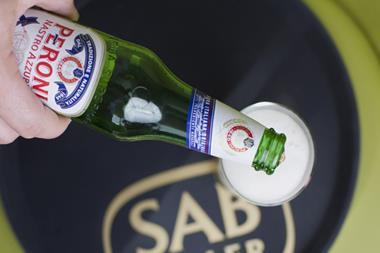
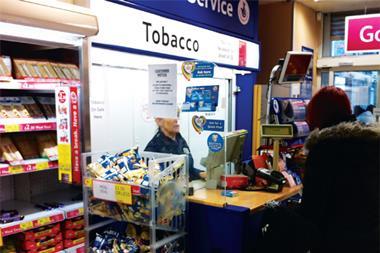
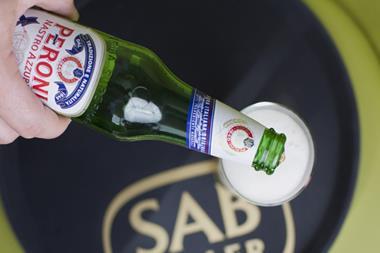
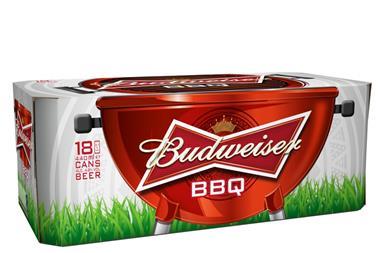

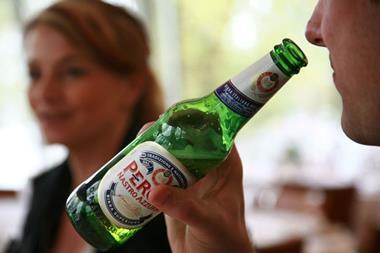






No comments yet